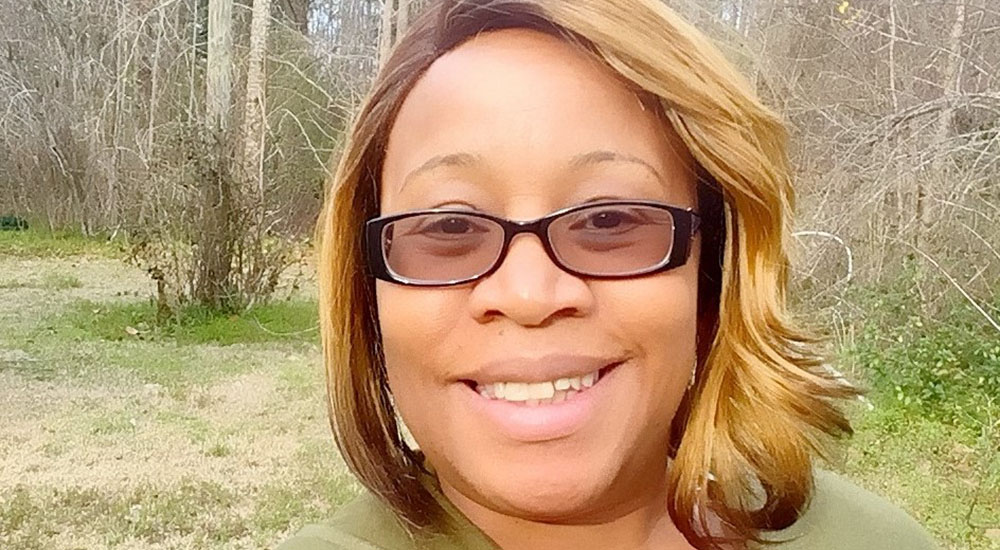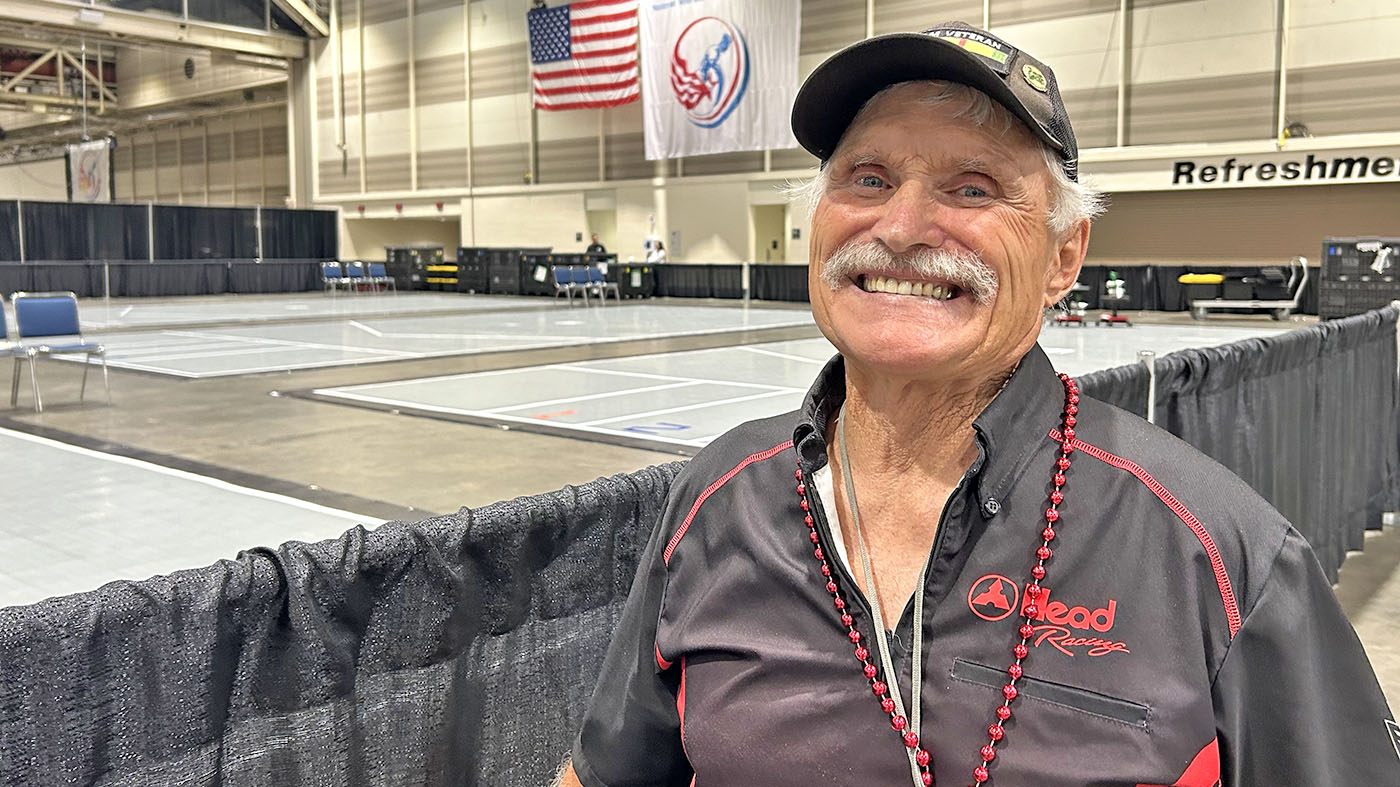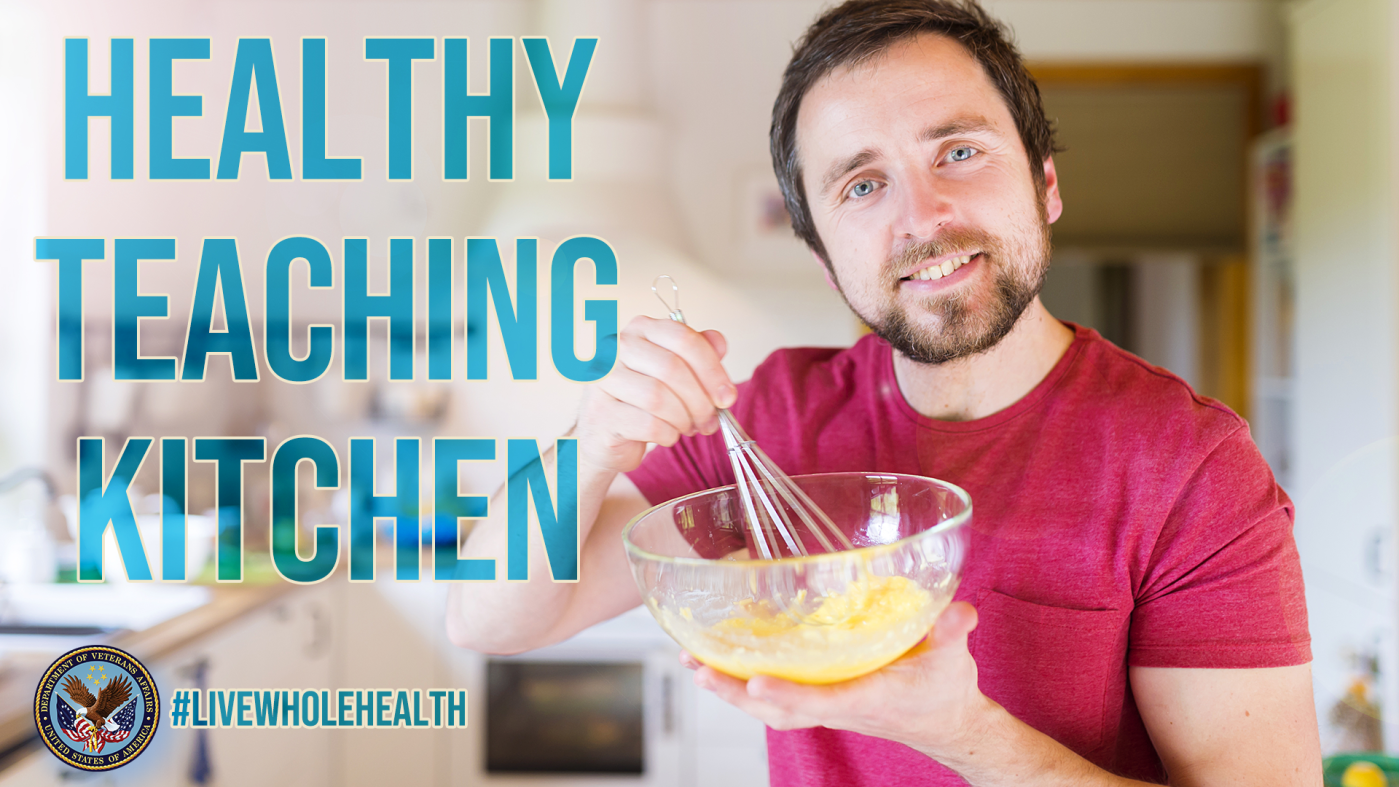“I think a person owes it to themselves to make a commitment to themselves, to do the best that you can for yourself. Especially if you’re a Veteran,” said Yvonne Grissett, military sexual trauma (MST) survivor and Army Veteran.
Grissett (pictured above) has loved to cook since she was a child. From her kitchen in Washington, D.C., she remembers the cakes at her grandmother’s house. “They had coconut, chocolate layer cake, pies, delicious.”
To her, the cakes represented the warmth of her family. And to this day, baking is a source of joy for Yvonne. “I dream of owning my own cake restaurant.”
In 1982, Yvonne joined the U.S. Army. For the next four years, she served as a 94B – a food service specialist. A cook.
What felt to her like the American Dream turned into a nightmare. Yvonne married another soldier who physically and sexually assaulted her for over two years. “It was humiliating, devastating, degrading.”
Because it happened in the context of her service, it’s a form of MST. Yvonne reported the situation to her company commander who, she said, “would not address the issue.” She felt helpless and “drank alcohol to escape the brutality.”
Ended military service… and her marriage
Yvonne finished her final tour in Germany, finally ending her service and her marriage. But the effects of her trauma followed her. Eventually, Yvonne was homeless and living under a bridge.
Reflecting on this period, Yvonne recalls, “I had a cardboard box that I had flattened out and some bags of clothes. My alcoholism progressed to full-fledged drug addiction. I resolved that I had a moral deficiency and this was my lot in life.”
When Yvonne was diagnosed with PTSD in 2011, she felt relieved. “It was like a weight was lifted because some of the thoughts and things that I did, I could see how it resulted from the PTSD. That I wasn’t just drinking myself to death. I was self-medicating.”
Yvonne joined Narcotics Anonymous, which helped her get sober. She soon found a place to live and started taking classes in culinary management. Things were good for the first time in a long while, but Yvonne started to “see” her ex-husband and abuser as she moved in and around D.C. “He was on the Metro, at the grocery store, in the library.”
“I made myself get up and go to the VA”
She panicked. “My solution was, ‘I’m going to stay in the house.’ Seven or eight months later, I was in my house with knives stashed all around to protect myself. I knew I needed help. So I made myself get up, get out and go to the VA.”
With a therapist, Yvonne came to understand some of her negative behaviors, but she was reluctant to talk about her sexual trauma. “I knew I had just scratched the surface of my PTSD. I knew I had more work to do, and wanted to address the sexual assault that I had experienced in the Army.”
In the safety of her therapist’s office, using a treatment called eye movement desensitization and reprocessing, Yvonne worked on some of her hardest memories. In treatment, Yvonne learned that the trauma wasn’t her fault and started to repair her self-esteem. “It was just powerful. It’s powerful now. I walked out of those sessions like a human being, powerful, strong and courageous, like I went into the military.”
Today, Yvonne is a peer support specialist at the Washington, D.C. VA Medical Center, where she supports other Veterans as they go through treatment for PTSD. It’s a job which she says brings a lot of meaning to her life and helps her keep things on track.
And though she loves her job, Yvonne still holds on to her dream of baking: “I don’t think I’m there yet. When I open the cake restaurant, I’ll be the best that I can be.”
Victoria Bippart is the director and producer of AboutFace, a VA program features Veterans’ real stories living with PTSD.
Topics in this story
More Stories
Veteran Hank Ebert is a bit of a superstar in the National Veterans Wheelchair Games. He has been attending since 1993.
Embrace simplicity and balance during the holiday frenzy! Discover the beauty of self-care and a nourishing meal in this week's #LiveWholeHealth practice.
Monica Diaz, executive director of the Homeless Programs Office, discusses the progress made in housing Veterans in 2024.







confronted very successfully! congratulations.
I am a Navy Veteran, also a MST survivor. Ms. Grissett story caught my attention because of the similarities of what we went through. I would love to reach out to her to talk about how she is helping others who suffer from PTSD due to MST.
Why wont the VA and other media and blogs address male sexual trauma. I feel so alone with my nightmares and mental health that remind me of what happened to me. It’s in my VA records that my PTSD is from my sexual assault. I just wish I had some sign that I’m not alone. I still carry a lot of anger to my abuser. Am I the only man that has flashbacks when I’m trying to be intamit with my wife. It kills the mood and leaves me in tears. Last time I went to the VA mental health department it was to be screened for my issues. The questions were uncomfortable and he was rude. I walked out. I felt those questions were more appropriate in a clinical environment, not in a screening by a clerk. 2 months later I’m getting a C& P appointment to evaluate my 100% disability because that f-n clerk said nothing was wrong with me and I was doing better. The C&P was specifically about my 100% rating. The doctor said nothing has changed but that C&P exam covered 3 of my service connected traumas and I went home exhausted with no therapist to help. I was a wreck for over 3 weeks. I just wish one nan to share how he copes with his trama.
I find journaling helpful. Writing down the things I had to tolerate makes gets it organized and makes dealing with each episode more possible. I have also been in therapy for 2 years with a couple of extremely good therapists. Don’t give up on the VA, try again and make sure you are seen by a psychologist. Do let one clerk have the last say, ask for the director of the CBOC or see the patient advocate in the medical center.
I no Yvonne and she’s just an awesome lady. She helped me through some tough stuff with my own PTSD and I’m eternally grateful to her for being there when I wasn’t ready or willing to confront my own MST. I’ve met a lot of people going through treatment after treatment and I can’t say I remember all of them but Yvonne stands out in my memory as one of the coolest, kindest, most down to earth, salt of
the earth folks I’ve met in my life. Having been through the ringer with my own PTSD induced drug and alcohol problems She is everything these article says and so much more. I love her dearly.
Watch Yvonne Grissett’s story here:
(click on the link or paste it into your browser)
https://www.ptsd.va.gov/apps/aboutface/videos/our-stories.html
She’s the reason for the season of survival because she represents how we can overcome tragedy and adversity even during the COVID-19 Pandemic 2020 on this Memorial Day Weekend.